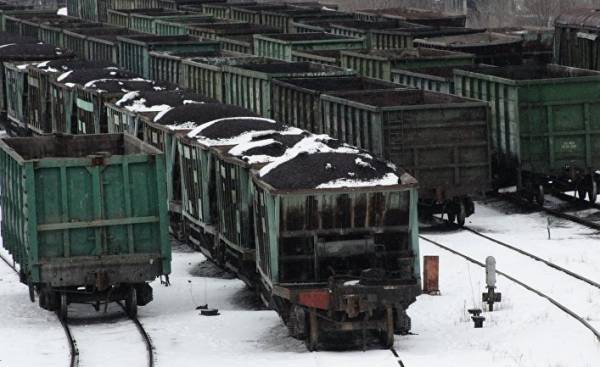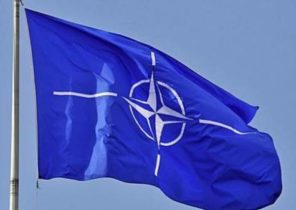
A month has passed since then, as several hundred volunteers — mostly veterans of the conflict in Eastern Ukraine — block train service between Pro-Russian separatists of Donbass and the rest of Ukraine.
The activists are thus trying to interrupt the economic cooperation of Kiev with the separatists, which still was quite impressive. It is estimated that a complete cessation of this collaboration will mean for the Ukrainian economy a damage in $ 2 billion a year. Institutions condemn the blockade, but fail to take action against the activists. Perhaps because the blockade of Kiev is advantageous, because it reduces the likelihood that you will have to fulfill the Minsk agreements, or plan for the normalization of the situation in the East of Ukraine.
The Minsk agreement was reached in the moment when the situation at the front became critical for Kiev, and why many in Ukraine believed these agreements are such to be waived. Meanwhile, the Moscow Minsk agreements are beneficial, as in the case of their implementation, formation of, in fact, a federated Ukrainian state, the Kremlin would have had ample opportunity to monitor what is happening on Ukraine through Pro-Russian politicians of Donbass. Donbass has received a right of veto over the foreign policy of Ukraine that excludes the possibility of the accession of this country to the European Union and NATO.
Of course, in the text of the Minsk agreement all the above is not a word, but in practice such a scenario is likely, because the sympathies of the majority of inhabitants of Donbass on the side of Russia. It would be naive to hope that the elections in this region by any of the Pro-European parties in Ukraine can achieve noteworthy success. Thus, after a possible Amnesty, federalization, etc. Donbass legal will be an open representative of Russia in Ukraine, moreover, with ample opportunities to realize these interests. Moreover, the “Minsk-2” not only signed in the presence of international guarantors, but supported by the UN, and therefore to abandon this agreement, Kiev may only for serious reasons which the opposite party is trying to give.
In the end, Ukraine must make a choice between the adoption of the Minsk agreements, to attempt to regain control over Donbas by military force and the complete abandonment of this region. Given the fact that the Minsk agreement Kiev disadvantageous, and military victory in the current balance of forces is unlikely, moreover, another defeat is fraught with complete collapse of the Ukrainian state, the rejection of Donbass de facto or perhaps de jure is not as unreasonable as it might seem at first glance. This explains the fact that no one is trying to stop the activists, despite the risks to the economy of the state. The smaller of Kiev’s ties with the separatists, the greater the room for maneuver in advancing to the West.







